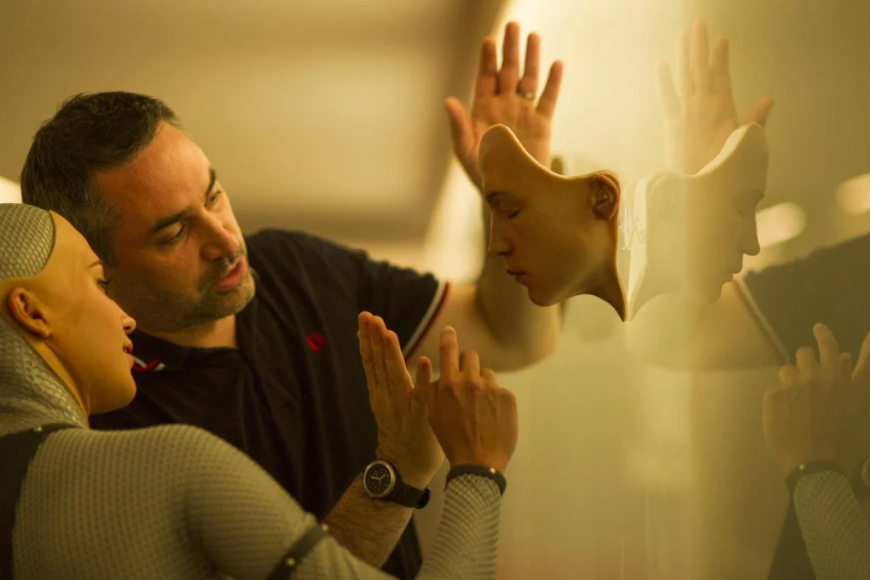Alex Garland: The Visionary Behind Modern Sci-Fi and Beyond

Introduction
Alex Garland stands as one of the most influential voices in contemporary science fiction and psychological storytelling. From his literary debut with The Beach to his directorial ventures like Ex Machina and Annihilation, Garland has consistently explored the boundaries of human consciousness, technology, and societal structures. His works, characterized by intellectual depth and visual innovation, have earned him critical acclaim and a dedicated following.
Early Life and Literary Beginnings
Born on May 26, 1970, in London, England, Alexander Medawar Garland hails from a family steeped in intellectual and artistic pursuits. His father, Nicholas Garland, is a renowned political cartoonist, while his maternal grandfather, Sir Peter Medawar, was a Nobel Prize-winning biologist. Garland pursued art history at the University of Manchester, a background that would later inform his meticulous visual storytelling.
Garland's entry into the literary world was marked by the publication of The Beach in 1996, a novel that delved into the dark side of utopian dreams among backpackers in Thailand. The book's success led to a film adaptation in 2000, directed by Danny Boyle and starring Leonardo DiCaprio. He followed this with The Tesseract (1998) and The Coma (2004), both of which further showcased his penchant for exploring complex psychological and philosophical themes.
Transition to Screenwriting and Film
Garland's collaboration with director Danny Boyle on 28 Days Later (2002) marked his transition into screenwriting. The film revitalized the zombie genre, infusing it with a sense of realism and urgency. He continued this partnership with Sunshine (2007), a sci-fi thriller that combined existential questions with space exploration.
In 2010, Garland adapted Kazuo Ishiguro's Never Let Me Go into a poignant screenplay, and in 2012, he penned the script for Dredd, a gritty reimagining of the comic book character. Though not officially credited as the director, many, including lead actor Karl Urban, have acknowledged Garland's significant role in shaping the film's direction.
Directorial Ventures
Garland made his directorial debut with Ex Machina (2014), a cerebral exploration of artificial intelligence and human consciousness. The film garnered widespread acclaim, earning him an Academy Award nomination for Best Original Screenplay and winning the Oscar for Best Visual Effects.
He followed this with Annihilation (2018), an adaptation of Jeff VanderMeer's novel. The film, starring Natalie Portman, delved into themes of self-destruction and transformation within a mysterious ecological phenomenon. In 2020, Garland ventured into television with the miniseries Devs, a philosophical inquiry into determinism and free will set against the backdrop of a tech company.
His subsequent films, Men (2022) and Civil War (2024), continued to push narrative and thematic boundaries. Men offered a surreal examination of grief and gender dynamics, while Civil War presented a dystopian vision of a divided America through the lens of war journalists.
Recent Projects and Future Endeavors
In 2025, Garland co-directed Warfare alongside military advisor Ray Mendoza. The film, based on real-life experiences of Navy SEALs during the Iraq War, received critical acclaim for its unflinching portrayal of combat and the psychological toll on soldiers. Critics praised its immersive approach and emotional depth .
Looking ahead, Garland is set to direct a live-action adaptation of the acclaimed video game Elden Ring. Collaborating with production company A24 and game publisher Bandai Namco, the project will also involve George R.R. Martin, who contributed to the game's narrative. This venture signifies Garland's continued interest in exploring expansive, lore-rich universes .
Filmography Overview
| Year | Title | Role | Notes |
|---|---|---|---|
| 2002 | 28 Days Later | Screenwriter | Directed by Danny Boyle |
| 2007 | Sunshine | Screenwriter | Directed by Danny Boyle |
| 2010 | Never Let Me Go | Screenwriter | Adaptation of Kazuo Ishiguro's novel |
| 2012 | Dredd | Screenwriter | Unofficially credited as co-director |
| 2014 | Ex Machina | Writer/Director | Directorial debut; Academy Award nominee |
| 2018 | Annihilation | Writer/Director | Adaptation of Jeff VanderMeer's novel |
| 2020 | Devs (TV Series) | Writer/Director | FX miniseries exploring determinism |
| 2022 | Men | Writer/Director | Surreal horror exploring grief |
| 2024 | Civil War | Writer/Director | Dystopian war drama |
| 2025 | Warfare | Co-Director | Based on real-life military experiences |
| TBA | Elden Ring | Director | Live-action adaptation of the video game |
Awards and Recognitions
Garland's work has been recognized with numerous awards and nominations:
-
Academy Awards: Nominated for Best Original Screenplay (Ex Machina, 2016) .
-
British Independent Film Awards: Won Best Director, Best Screenplay, and Best British Independent Film for Ex Machina .
-
Nebula Awards: Nominated for the Ray Bradbury Award for Outstanding Dramatic Presentation (Ex Machina, 2015) .
-
Critics' Choice Awards: Multiple nominations, including Best Original Screenplay for Ex Machina .
Thematic Exploration and Style
Garland's works are characterized by their exploration of complex themes:
-
Artificial Intelligence and Consciousness: Ex Machina delves into the ethical implications of AI and what it means to be human.
-
Human Psychology and Transformation: Annihilation and Men examine the human psyche, trauma, and the process of change.
-
Societal Structures and Dystopia: Civil War presents a fractured society, reflecting on political polarization and media's role.
-
Determinism vs. Free Will: Devs questions the nature of reality and whether our choices are truly our own.
Garland's style often blends philosophical inquiry with genre elements, creating narratives that are both intellectually stimulating and emotionally resonant.
Conclusion
Alex Garland's multifaceted career—from novelist to screenwriter to director—demonstrates his relentless pursuit of storytelling that challenges and engages audiences. His works serve as a mirror to our deepest fears, hopes, and questions about existence. As he continues to explore new frontiers, both literal and metaphorical, Garland remains a pivotal figure in shaping the landscape of modern cinema.






























